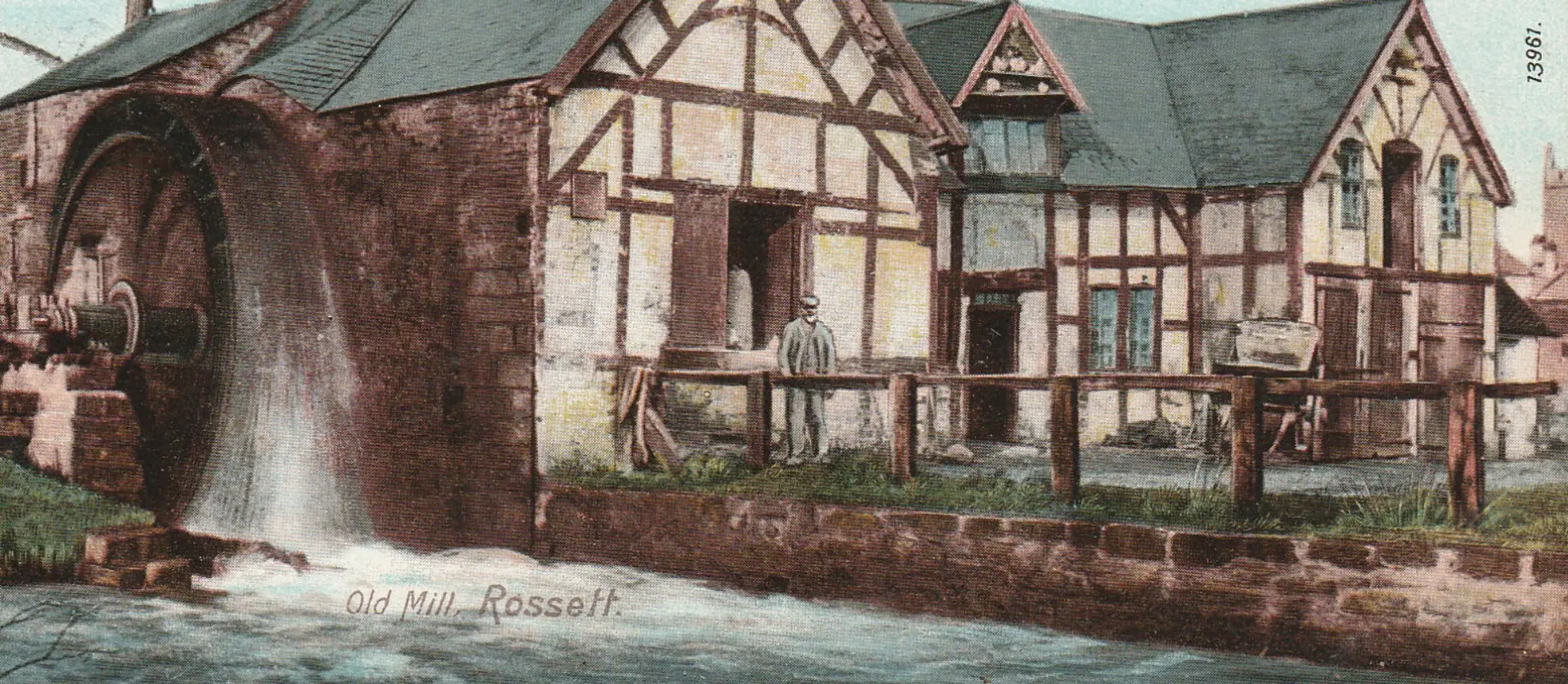Well we have the final brush-off by the Welsh Planning Inspectorate (PINS). It appears that they don’t want to hear from us again! Our experience of using the “NON-INDEPENDENT” complaints procedure aimed at the Planning Inspector and PINS has been somewhat as expected. It goes to show that a government body that regulates itself cannot have an independent viewpoint. It is basically a cover-up.
Summary
We regard the whole complaint process as an example of the wishes of the local community being discounted and totally ignored and that the stated policies of the Welsh Government can be casually treated by developers and their advisors to their advantage against the interests of the local community.
We do not intend to write further to PINs as all we will achieve is either no reply or a further attempt to justify the perverseness of the decision. We will now concentrate our efforts to frustrate the development as and when it comes forward with a developer at Planning Reserved Matters. We also intend to make representations to WCBC regarding the inappropriate use of SoCGs that undermine the Committee decisions.
 Loading…
Loading…
RFG Commentary on PINs Replies to Our Follow-up & Complaint Letters
Choice of Procedure
It appears that the Welsh Government had not asked for the procedure to be varied from an Oral Hearing to Written Representations but this was the decision of the Inspector. In the original PINs Response, it was stated “they are considered in light of whether what they raise are material considerations in planning decision making or not, and then how relevant the decision maker finds that consideration to be in the particular case before them”. We can only conclude that our representations on behalf of the whole community of Rossett were not considered relevant.
Contrary to the claim made by the Appellant that he had spoken to a friendly inspector to have the procedure changed PINs advise they “can find no evidence that the appellant or their agent contacted the Inspector directly regarding the choice of procedure. I am satisfied that there was nothing improper in the choice of procedure in this case”.
The Planning Inspectorate place information on their Portal (ACP) as a gesture to the public. We are advised the Inspector works off a separate system of files from those viewed by the public.
It would appear from the latest comments that little or no weight is given to Interested Party representations, although it is stated “and all representations submitted would have been available to the appointed inspector”. Whether the Inspector actually looked at all or any representations is not clear from the reply.
Accepting Statement of Common Ground
PINs response states “that the Inspector was entitled to rely on the evidence presented to him”. Quite clearly the Statement of Common Ground (SoCG) contributed to the undermining of the decision of the Council Members and the Officers actions in promoting a roadway were in contravention of the provisions of the Manual for Streets, Tan 18 and WCBC Planning Policy GDP1(d). In such an appeal determined by Written Representations, we consider SoCGs should form no part but this happened and cannot be changed.
Emerging Local Development Plan
The lack of an up to date Local Development Plan counted heavily in favour of approval in the recommendation by the Inspector. PINs acknowledge our view that the emerging Local Development Plan (LDP) and the extant Wrexham County Borough Council Unitary Development Plan (WCBC UDP) have been ‘cherry picked’ by the Inspector to justify his decision. PINs advises “that if you consider the Inspectors handling of the weight to attribute to the LDP and UDP is legally flawed you should address the matter in the High Court”.
We think such an action is ill advised because in the unlikely success in the, high cost, High Court the matter would be referred straight back to the decision maker (Welsh Minister) to make the same decision.
It appears to us that the Welsh Government sets out to grant speculative development as a penalty for a Community where a Council has not performed diligently to create a Local Development Plan. In Wrexham case we have been waiting for a new LDP since 2011 and this might happen in 2021 if we are lucky and the Inspectors find in the plan sufficient grounds for it to be approved. Until then more speculative development in Wrexham & Flintshire can be expected as neither Council has an up to date LDP.
5-year Housing Land Supply
PINs advise “where an LPA does not have an adopted LDP, or where an adopted UDP is outside of the plan period as in this case, it will not be able to produce a JHLAS and therefore will not be able to demonstrate a five-year supply of land for housing.” This JHLAS provision of TAN1 has now been revoked but little help to us.
Although we submitted details before the deadline to the Planning Inspector that WCBC had announced they had a 5-year land bank and referenced LDP Document BP08B detailing this, PINs advise “that it was not incumbent on the Inspector to seek any clarification in regard to Council Document BP08B. Paragraph 17 of the Inspector’s report is clear: “where an LPA does not have an adopted LDP, or where an adopted UDP is outside of the plan period as in this case, it will not be able to produce a JHLAS and therefore will not be able to demonstrate a five year supply of land for housing.”
As a result, this speculative development was granted because the Council have not got an up to date LDP.
Previous Application
The PINs response on the lack of information on previous Planning History Ref ROS 17649 is totally wrong. The Paragraphs referenced in the Inspector Report (IR62), (IR66) and (IR96) in no way relate to the complete previous planning history of Planning Application ROS17649 which was shown in full in RFG representation documents. This points again to the fact that representations from interested Persons such as RFG receive little or no consideration. In this context no consideration was given and the Inspector confirms this in his report (IR18) “Residential development and the construction of new vehicular and pedestrian access was refused planning permission under LPA Ref: ROS 17649. No further information has been disclosed.”
The Inspectorate’s Handling of Various Planning Issues
It is quite clear from PINs response that “You may not agree with the Inspector, but this does not mean the Inspector arrived at his findings in anything other than a fair and impartial way. They were conclusions he was entitled to reach using his professional judgment”.
RFG still consider the final decision to recommend granting approval was perverse, bearing in mind the Inspector totally endorsed the Planning grounds on which the Council Members refused the application and does not award costs against the Council but still goes on to allow the appeal.
It is quite clear that RFG will never accept that the handling of the various planning issues was ever done properly to conclude with the decision it did, which we claim was against the weight of evidence submitted.
Validation of the Appeal
PINs reply on this matter is very interesting. When an appeal is lodged Appellants are advised that there is up to 7 weeks required to validate an appeal. The question arises from the PINs response “The requirements needed to make a valid appeal are listed at Article 26 (3) of the DMPO. The substance of an appellant’s grounds of appeal are not a validation requirement “.
The question therefore arises why PINs tell applicants that the grounds of the application must be validated when there is no provision for such in the Town & Country Planning legislation. If the matter is that simple why does the validation process (grounds not required to be demonstrated) take about 7 weeks and what are all the staff doing taking this long. This is just a question for another arena!
Evidence Placed Before the Minister & Inspectors
“2 Different Decisions on LDP Soundness“
On the PINs response to these issues the silence is deafening.
Failure of Planning Policy Wales
1.30 Managing New Development
Development management is the positive and proactive approach to shaping, considering, determining and delivering development proposals through the process of deciding planning applications. It is led by the planning authority, working collaboratively with those proposing developments and other stakeholders including the local community. It must be undertaken in the spirit of partnership and inclusiveness (using the five ways of working) and supports the delivery of key priorities and outcomes (contributing to improving the social, economic, environmental and cultural well-being).

Lesley Griffiths – Cabinet Secretary for Energy, Planning and Rural Affairs
Also MS for Wrexham – You couldn’t make it up!

